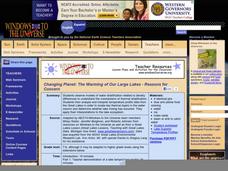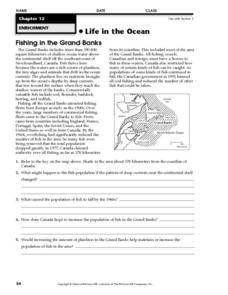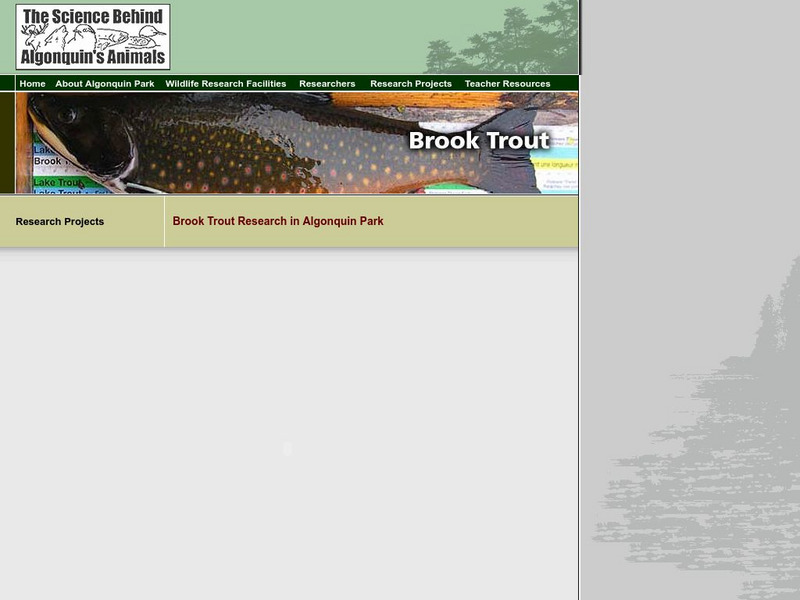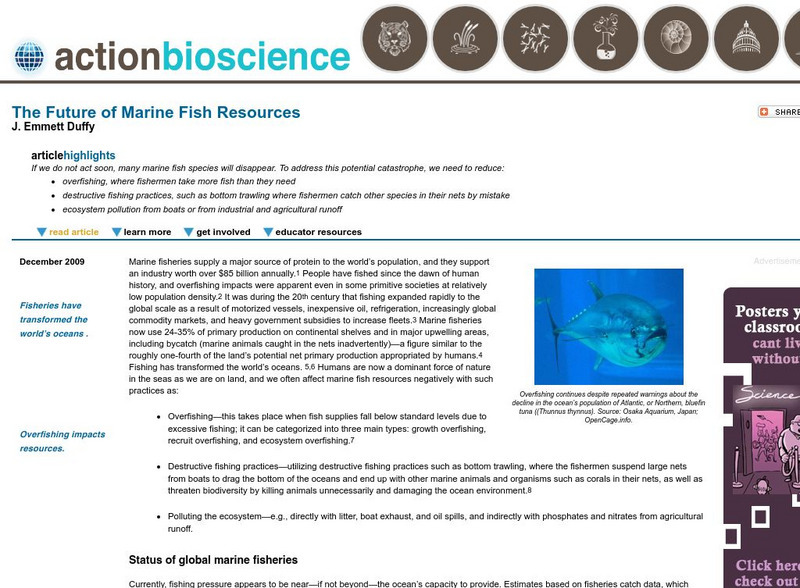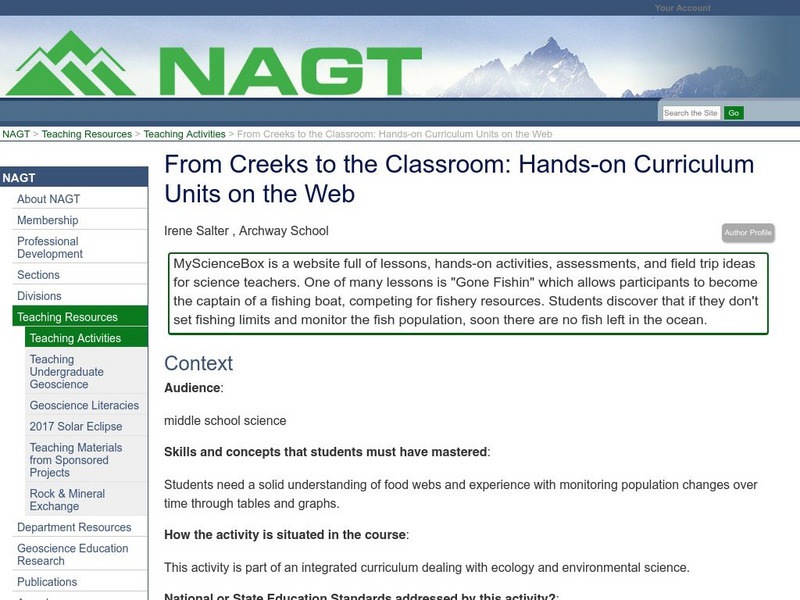Curated OER
Changing Planet: The Warming of Our Large Lakes - Reasons for Concern
Another A+ lesson on the impact of climate change comes to you from the National Earth Science Teachers Association. In this installment, learners model the stratification of water in lakes due to temperature differences. The lab also...
Curated OER
Fishing in the Grand Banks
In this fishing learning exercise, students read about the fishing trends off of Newfoundland, Canada and how fishing has effected fish populations. Students complete 5 short answer questions based on the reading.
National Geographic
National Geographic: Fisheries
In this lesson, students explore issues related to fisheries sustainability and simulate fish monitoring methods commonly used by scientists and resource managers.
Friends of Algonquin Park
The Science Behind Algonquin's Animals: Brook Trout Research
It is a difficult job to determine the population of fish in a lake. Using a mark-recapture method gives researchers an accurate estimate of the fish population in a lake. As a researcher, your job at this activity, is to capture Brook...
American Institute of Biological Sciences
Action Bioscience: The Future of Marine Fish Resources
An article and supporting resources address the potential of fish populations significantly decreasing with overfishing, careless fishing, and pollution from nautical vessels and runoffs.
American Institute of Biological Sciences
Action Bioscience: The Decline of North American Freshwater Fishes
An article addressing the need of immediate action to repair damages of declining life in the ecosystems of North American inland bodies of water.
National Association of Geoscience Teachers
Nagt: From Creeks to the Classroom: Gone Fishin'
Gone Fishin allows participants to become the captain of a fishing boat, competing for fishery resources. Learners discover that if they don't set fishing limits and monitor the fish population, soon there are no fish left in the ocean.


